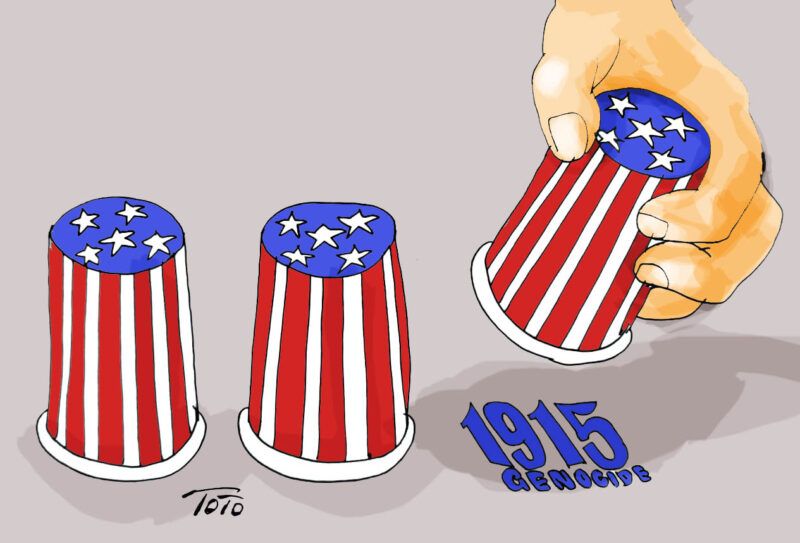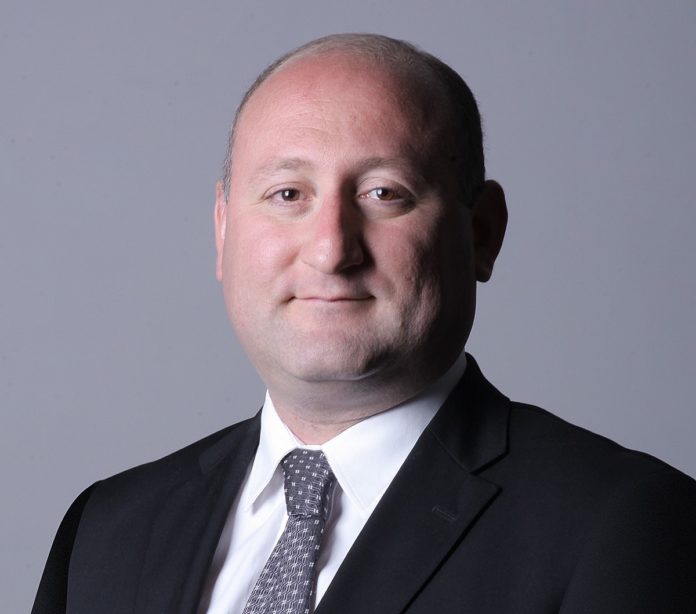April 24, 2025, marked the 110th anniversary of the Armenian Genocide. The recognition of the Armenian Genocide has always been one of the top issues in US-Armenian relations as well as for Armenian diaspora in the USA. In his 2025 statement, President Donald Trump reverted to a neutral stance, omitting the term “Armenian Genocide” used by his predecessor, Joe Biden, suggesting the issue is again a political bargaining chip with Turkey. Moreover, the European Union mission in Armenia removed from its original tweet the term genocide shortly after it was posted. Below is a short history of US policy in this regard.

Back in the late 19th and early 20th centuries, one could observe a dangerous pattern in US policy towards the dire plight of the Armenian people. The twenty-eighth president of the United States Woodrow Wilson’s two terms of presidency (1913-1921) spanned the years of the Armenian Genocide. The US took a general stance of neutrality during the early years of World War I, which in turn led to a policy of neutrality and non-intervention in the Armenian Genocide taking place in the Ottoman Empire – despite significant concerns and advocacy efforts on the Armenian issue. Even though the USA was receiving credible flow of information about the massacres and mass deportation of Armenians in the Ottoman Turkey, it chose to stay silent and avoid action first because the USA had a strategic goal of staying neutral during the World War I and second of all, the United States was reluctant to take a confrontational position towards the Ottoman Turkey, which was a regional superpower and good relations with it was of substantial geopolitical advantage for the United States. The easily accessible oil in the Near East and US-Turkish prospering trade relations played their crucial role. So, maintaining these relations was Washington’s primary goal back then.
US Ambassador to the Ottoman Empire Henry Morgenthau during the Armenian Genocide played a pivotal role in reporting to the US government about the atrocities towards Armenians happening in the Ottoman Empire. In a confidential telegram to the Secretary of State, Ambassador Morgenthau wrote: “Deportation of and excesses against peaceful Armenians is increasing and from harrowing reports of eye witnesses it appears that a campaign of race extermination is in progress under a pretext of reprisal against rebellion. Protests as well as threats are unavailing and probably incite the Ottoman government to more drastic measures as they are determined to disclaim responsibility for their absolute disregard of Capitulations and I believe nothing short of actual force which obviously the United States are not in a position to exert would adequately meet the situation. Suggest you inform belligerent nations and mission boards of this.” Later Ambassador Morgenthau wrote a memoir titled “Ambassador Morgenthau’s Story (1918),” where he described in detail all the atrocities towards Armenians he witnessed and documented. His book, based on his diaries and State Department records, later shaped the US understanding of what happened to Armenians in the Ottoman Empire.
Before the collapse of the Soviet Union and Armenia’s independence, two US presidents referred to the issue of the Armenian Genocide. However, only one of them called it a “genocide.”
On May 16, 1978, former President Jimmy Carter during a reception honoring Armenian Americans at the White House mentioned that “… it’s generally not known in the world that in the years preceding 1916, there was a concerted effort made to eliminate all the Armenian people, probably one of the greatest tragedies that ever befell any group. And there weren’t any Nuremberg trials.” Later his successor Ronald Reagan in his Proclamation of April 22, 1981 commemorating the “Days of Remembrance of Victims of the Holocaust” mentioned the word “genocide” explicitly referring to the Armenian Genocide for the first time in the US history. It reads: “Like the genocide of the Armenians before it, and the genocide of the Cambodians which followed it – and like too many other such persecutions of too many other peoples – the lessons of the Holocaust must never be forgotten.”








